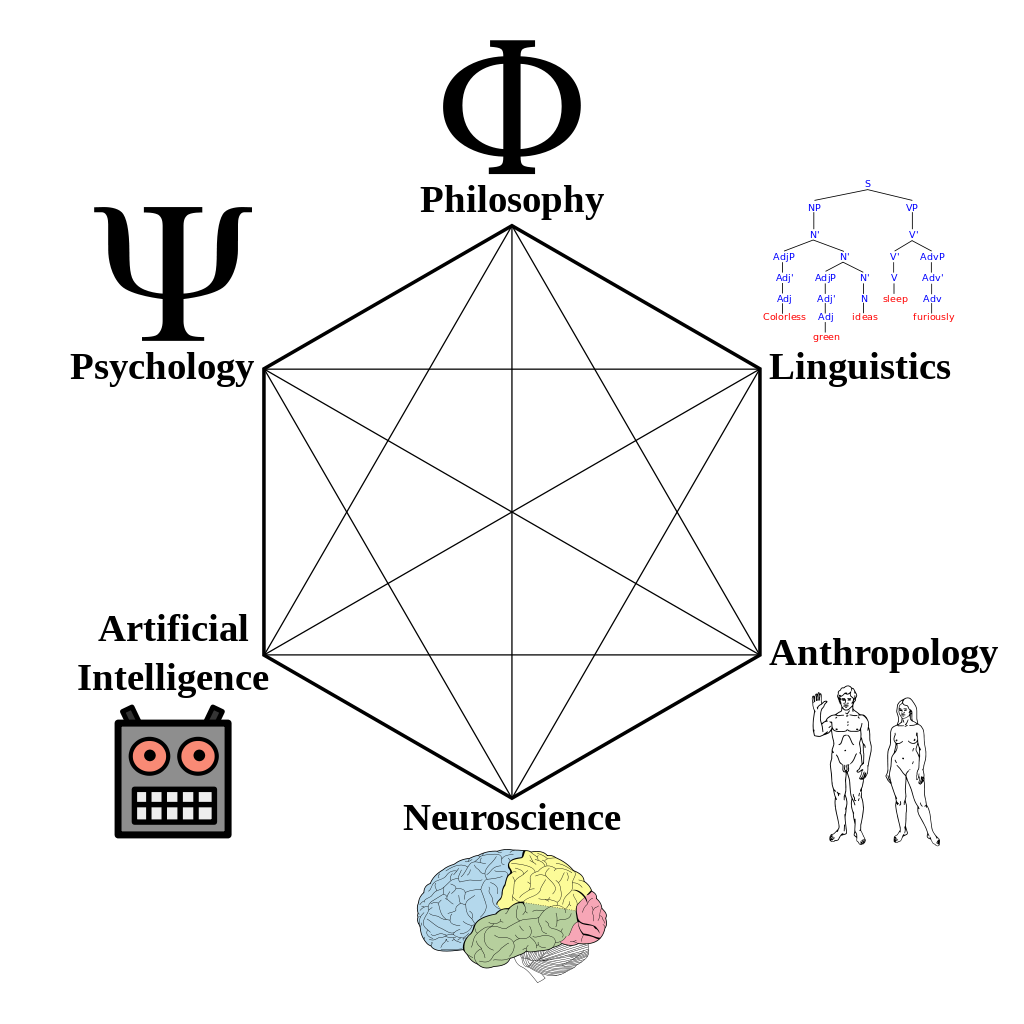Artificial Intelligence
Theory of Mind
- Thoughts
- Feelings
- Emotions
- Self Awareness
- Empathy
What is Mind?
There is no proven definition of Mind.
Mind can be defined as an instantiation of intelligence.
Mind can be defined as a collection of knowledge.
Is thinking, feeling, and meaning mind or know-how?
Is the Mind just a big computer?
Cognitive Science
Cognitive science is the study of mind processes.
A cognitive scientist studies intelligence and behavior.
Cognitive science focus on how brain cells process and transform information.
Cognitive Science also tries to learn how to develop intelligent computer algorithms.

The Mental Model
A mental model is an internal picture of the external reality.
Scientists expects that a model plays a major role in reasoning and decision-making (cognition).
Kenneth Craik suggested in 1943 that the mind constructs "small-scale models" of reality when trying to anticipate events.
Can AI Be Human?
Scientists are trying to discover what separates human intelligence from artificial intelligence.
What is the status? What is the future?
- Year 2000: Reactive Machines
- Year 2015: Machine Learning
- Year 2030: Theory of Mind
- Year 2050: Self-Awareness
Reactive Machines

Early AI systems were reactive. Reactive systems cannot use past experience.
In 1997 a reactive machine ("IBM Deep Blue") beat the world champion in chess.
"Deep Blue" could not think. But it was stored with information about the chess board, and the rules for moving chess pieces.
"Deep Blue" won because it was programmed to calculate every move to win.
Machine Learning
Today, AI systems can use some information from the past.
One example is self-driven cars. They can combine pre-programmed information with information they collect while they learn how to drive.
Theory of Mind
Theory of Mind is a term from psychology about an individual's capacity for empathy and understanding of others.
This is an awareness of others being like yourself, with individual needs and intentions.
One of the abilities language users have, is to communicate about things that are not concrete, like needs, ideas, or concepts.
Simon Baron-Cohen, British psychologist and professor at the University of Cambridge, argues (1999) that "Theory of Mind" must have preceded languages, based on knowledge about early human activities:
- Teaching
- Building Shared Goals
- Building Shared Plans
- Intentional Communication
- Intentional Sharing of Topic
- Intentional Sharing of Focus
- Intentional Persuasion
- Intentional Pretending
- Intentional Deception
Self-Awareness
In psychology, "Theory of Mind" means that people have thoughts, feelings and emotions that affect their behavior.
Future AI systems must learn to understand that everyone (both people and AI objects) have thoughts and feelings.
Future AI systems must know how to adjust their behavior to be able to walk among us.
The last step, before AI can be human, is machine consciousness.
We can not construct this software before we know much more about the human brain, memory, and intelligence.
